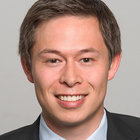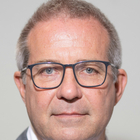The Current Column
The post-2015 development agenda: breaking new ground for a global framework
Janus, Heiner / Stephan KlingebielThe Current Column (2012)
Bonn: German Development Institute / Deutsches Institut für Entwicklungspolitik (DIE) (The Current Column of 10 September 2012)
Bonn, 10 September 2012. It is a familiar ritual: Heads of State and Government from around the world gathering in New York for the annual General Assembly of the United Nations (UN) that begins on 25 September. This time, their tasks include starting to draft a new global development agenda for the period after 2015 – in follow-up to the Millennium Development Goals (MDGs). Much remains unclear: there is no telling whether it will be possible for all the members to reach a broad consensus, or if only a ‘coalition of the willing’ will materialise to write a post-MDG document.
The period of intense internal debates has clearly begun, however, with UN Secretary General Ban Ki-moon appointing an international High-level Panel of Eminent Persons to work on a new development agenda. Germany’s former Federal President, Horst Köhler, who is well versed in development policy, sits on the panel that is charged with submitting proposals for a new agenda before the next MDG Summit to be held during the UN General Assembly in September 2013.
As expected, controversies are mounting about an MDG follow-up agreement: Should only the content of the original MDGs be improved or is it time to conceive an entirely new framework? How should the negotiating process be organised? Are the countries that are known to view the MDGs critically – such as the USA and several emerging economies – even interested in a new development agenda? Finally, which approaches and instruments could be applied towards reaching new goals?
In anticipation of many debates and tough consultations, it is important to set the proper course now. This means taking into account three particular challenges with regard to working on the new agenda over the coming year.
Linking human and sustainable development agendas
Global poverty reduction and social progress can only be achieved within the framework of sustainable development and carried out within planetary boundaries. The Rio+20 Summit acknowledged this by charging a group of experts with drafting Sustainable Development Goals (SDGs) to be presented at the UN General Assembly in September 2013. Thereby, as often happens, parallel structures were created within the United Nations: the SDG Group mandate overlaps that of the post-MDG panel that includes Horst Köhler. This overlapping reflects a dispute dating back to the 1980s about the goals of the traditional human development agenda and those for sustainable development.
While economic growth and social security systems are needed to reduce poverty, they are inevitably linked to increased resource consumption, whereas ecological sustainability aims at respecting planetary boundaries. Such conflicting goals are often difficult to resolve. However, there are many commitments and preparations to more effectively link sustainable development to poverty reduction, as evidenced by “inclusive green growth” initiatives. For this reason, everyone involved in post-2015 negotiations must seize this opportunity to combine the MDG and SDG agendas.
No meaningful ‘global framework’ without deep involvement of emerging countries
Every global agreement needs to be supported by a broad consensus. For the post-2015 process, it is important for dynamic economies like those of China, Indonesia and Brazil (along with other groups of countries) not only to be involved in the discussions and negotiating processes early, but also to shape them. Otherwise it will be difficult – if not impossible – to implement a new catalogue of global goals. The negotiating processes must be receptive to new ideas, concerns and points of view.
It is still unclear where these countries stand regarding the need for a post-2015 agenda. The post-2015 preparation process calls for dialogue about the significance, benefit and design of global development goals at all levels (formal consultations, open discussion formats, etc.). Germany – and all European actors – would be well advised to make such dialogue a major part of the preparations.
The ‘aid-only focus’ is too narrow
Supporting developing countries through aid was, and still is, an important tool for making progress towards the MDGs. Aid will continue to be important – in many cases, even essential – especially for poor and fragile countries, which means that debates about aid effectiveness remain relevant. But in previous years, focusing on aid has prevented the focus shifting to other areas. The old stereotype of aid-dependent countries is increasingly dated: for more and more countries, aid plays only a marginal role.
A truly global post-MDG approach would acknowledge that aid is only a partial response. Even poor developing countries largely finance their development efforts through taxes and other means of their own. Discussions about the post-2015 period should pay more attention to the global framework conditions and the world economic order, addressing such issues as: How can the international financial markets be re-designed to cause the least possible damage and also most effectively contribute to development? This is, after all, in the OECD countries’ own interest. Innovative approaches that can be promoted at the level of the European Union (EU) are needed. The EU could make a more significant contribution by seeing that international regulations (‘international regimes’) in various policy fields (such as international capital flows) are designed to be more development friendly.
Germany has many opportunities to help shape a new global framework. In order to have an international impact, Germany should promote and advocate the most coherent European course of action possible.


